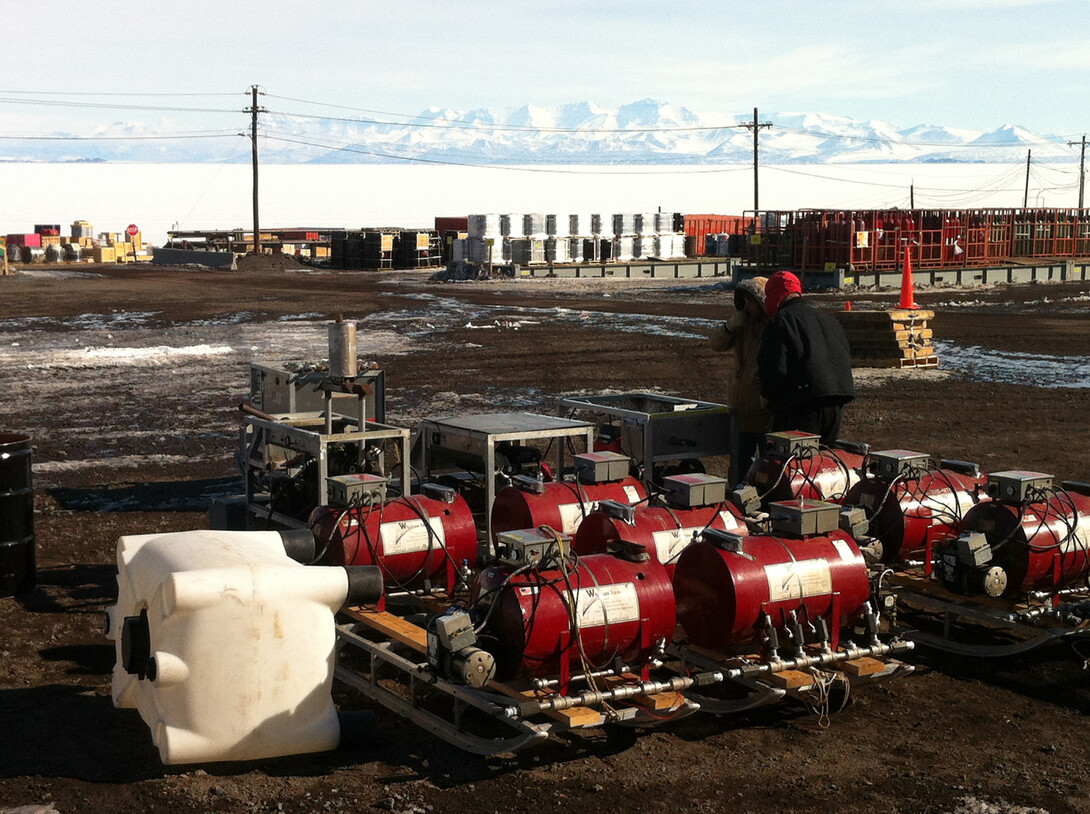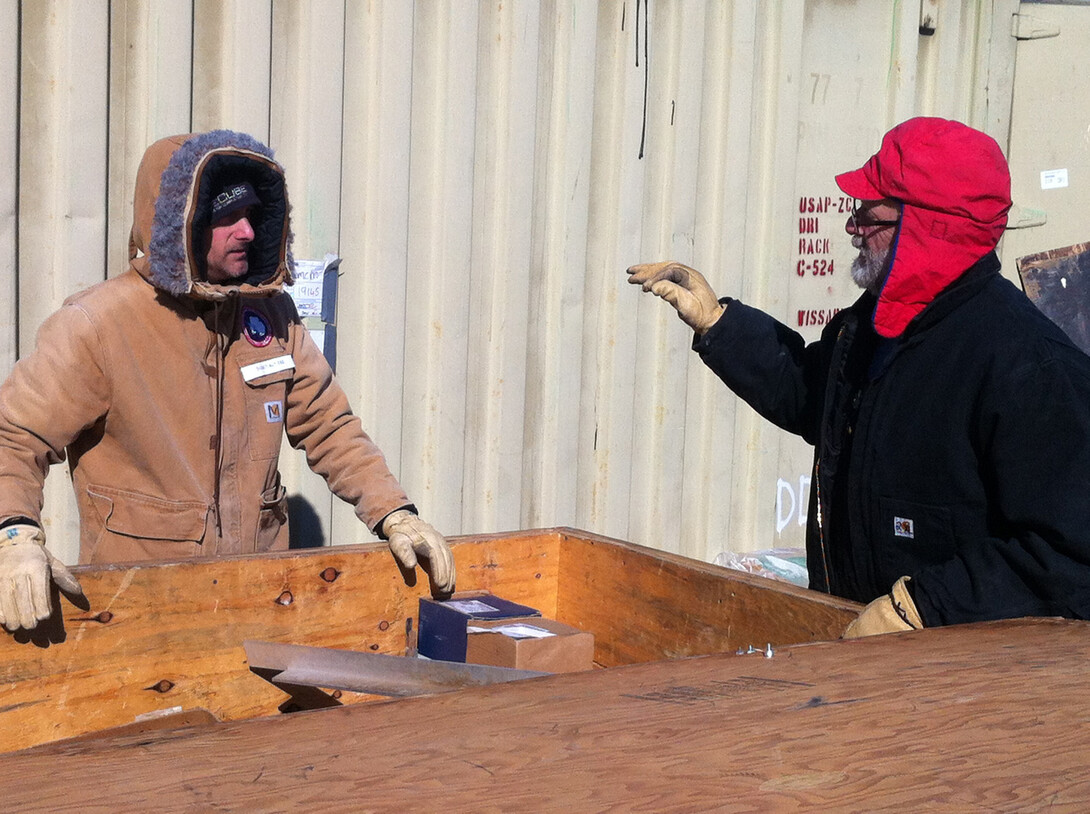
UNL’s Antarctic drilling team arrived in Antarctica on schedule in mid-November and has been occupied the last three weeks at McMurdo Station in getting UNL’s new roving hot-water drill ready to deploy to the area of Subglacial Lake Whillans.
The team of Dennis Duling, Daren Blythe, Chad Carpenter, Dar Gibson and Graham Roberts will complete the assembly of the drill to get it on the South Pole traverse’s train of tractor-pulled sleds around Dec. 30. The drillers will fly out to meet the drill in the second week of January and use the roving drill to drill 10-centimeter diameter holes into the ice at sites separated by about 50 kilometers, with two holes separated by a few kilometers at each site. A team of scientists from the University of California, Santa Cruz, will deploy an array of scientific instruments in the holes to study the movement of the Whillans ice stream over the bedrock below as it moves a few meters a day toward the Ross Sea.
The drillers will return to McMurdo, the main Antarctic station for U.S. Antarctic programs, at the end of January and return to Nebraska in early February.
The program is less ambitious than original plans for the 2013-14 season, due to the 16-day federal government shutdown in early October. The original plans called for eight drillers to travel to Antarctica to deploy two drills, the new roving drill and the history-making WISSARD hot-water drill that was deployed in the Lake Whillans project during the 2012-13. The drillers were to recover the WISSARD drill from where it was stored on a snow berm at its remote site near the southwestern edge of the Ross Ice Shelf, but that project was put hold by the National Science Foundation and the Lockheed Martin Antarctic support contractor.
That was one of several projects postponed or even canceled due to the shortened window for Antarctic travel this year, and as a result, the UNL drillers report that McMurdo isn’t bustling quite as much as it has in the past.
“They say that McMurdo is a lot quieter this year due to fewer people being deployed,” said Frank Rack, associate professor of Earth and atmospheric sciences at UNL and executive director of the Antarctic Geologic Drilling (ANDRILL) Science Management Office, the operator of the two drills. “But otherwise, everything is progressing normally.”








